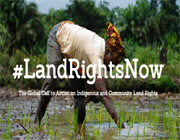
On 21May 2014, regional launching of “Human Rights Report 2013 on Indigenous Peoples in Bangladesh” of Kapaeeng Foundation (KF) was held at the District Council Auditorium, Sylhet. The regional launching event was supported by Oxfam and European Union, the organizations which also supported the publication of the report.
The event began with two inaugural songs on human rights of indigenous peoples in Bangladesh by Bangladesh Indigenous Cultural Forum. The inaugural songswere followed by a discussion meeting. Eminent educationist & Treasurer of Shahjalal University of Science and Technology Professor Dr. Md. Elias Uddin Biswas was present in the meeting as the chief guest while it was presided over by Mr. Rabindranath Soren, Chairperson of Kapaeeng Foundation. Welcome speech of the training was delivered by Mr. Gourango Patro, Executive Director of Patro Sampraday Kallayan Parishad (PASKOP). Head of the Anthropology Department of Shahajalal University of Science and Technology Professor Dr. Abdul Awal Biswas, Oxfam’s Programme Manager M B Akhter, Division Head of Bangladesh National Women’s Lawyer Association (BNWLA) Advocate Syeda Shirin Akter, Sylhet Press Club President Mr. Aziz Ahamad Salim, Joint Convener of Bangladesh Indigenous Women’s Network (BIWN) Ms Flora BablyTalangalso addressed the launching programme. Bablu Chakma, Project Coordinator of Kapaeeng Foundation made a presentation on Human Rights Report 2013.
In his speech, Dr. Md. Elias Uddin Biswas said I saw some Santal families who had everything; but in a few years they lost all their things and at the end they became landless and destitute. He claimed some of them(Bengalis) turned into land grabbers and played many tricksto occupy the lands of indigenous peoples. We all have to come forward to save our indigenous friends; otherwise we will be sinful to them, he said. He also mentioned that Government has to allocate Khas(state-owned) lands among landless indigenous people and have to fulfill the human rights of indigenous peoples.
Professor Dr. Abdul Awal Biswas, in his speech, urged the government to use the term ‘Adivasi’(indigenous) instead of ‘small ethnic group’, the term being used by the government undermining the demands of indigenous peoples. He urged to establish schools for indigenous children based on their mother tongues and also demanded to increasethe number of quota reserved for indigenous studentsin all kinds of educationalinstitutions.
Programme Manager of Oxfam, M B Akhter said, as a human being everyone has to right to enjoy the all fundamental rights. If any person or communities blame that they cannot enjoy their rights, then it is the government whohas to take action in order to ensure their fundamental rights. Indigenous peoples have always been deprived of enjoying their fundamental rights. He mentioned most number of the violation occurred to indigenous people are in a connection withland grabbing. He highlighted the statistics of population of CHT, whichshows how the indigenous communities therein becoming marginalized by mainstream population.
Advocate Syeda Shirin Akhter said, all laws enshrine equal rights of all citizens of the country but unfortunately some peopleoften tend to violate those rights. For their dominating behavior,the marginalize people are often victimized. Even if any marginalized and indigenous people crave, they cannot access justice. Sheurgedthe government to bemore positive towards indigenous people in the country.
Sanjeeb Drong, General Secretary of Bangladesh Adivasi Forum said, we believe in respect and dignity, so the government should have respect for indigenous peoples. Otherwise we cannot build a democratic country where all citizens of the country will live in peace and dignity.
Flora Bably Talang, Joint Convener of BIWN said,as the days going by, violations of indigenous peoples rights are on an increase. Sometimes the representative of state was involved with the violation activities. Now, the Indigenous people are living in fear of attack and evictionfrom their lands. She requested KF that, they have to cover the all reports of violation to indigenous people and disseminate to the various audience.
In order to get views of the audience present in the event, a open discussion was also held when six participants, both indigenous and non-indigenous, with different working backgrounds, gave their opinions in regards to the human rights report and situations of indigenous peoples in the country. Finally, Kapaeeng Foundation Chairperson Rabindranath Soren delivered his speech as the president of event and brought to an end to the event.
It is noteworthy that the human rights report is a result of Kapaeeng Foundation’s documentation and research work of the human rights situations of the indigenous peoples in Bangladesh throughout the year. Kapaeeng has been publishing its annual human rights on indigenous peoples in Bangladesh since 2007. “Human Rights Report 2013 on Indigenous Peoples” was prepared by eight contributors, namely, Binota Moy Dhamai, Assistant General Secretary of Bangladesh Indigenous Peoples Forum; Bipasha Chakma, Research Coordinator of KF; Bablu Chakma: Project Coordinator of KF; Sayon Dewan, Member of Indigenous Peoples’ Human Rights Defenders’ Network; GourangaPatra, executive director of Patra Sampraday Kalyan Parishad; Manik Soren, Member of Indigenous Peoples’ Human Rights Defenders’ Network; Falguni Tripura: Advocacy Facilitator of KF; and Mangal Kumar Chakma: Advisor of KF.The human rights report has been widely circulated and used by different organizations and individuals both at home and abroad for the purpose of advocacy and campaign for the rights of indigenous peoples in Bangladesh.



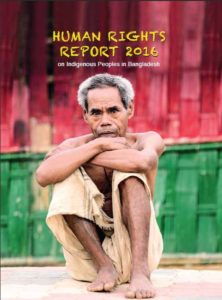
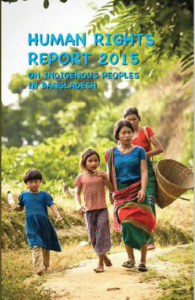
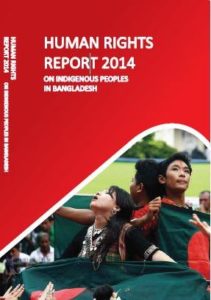
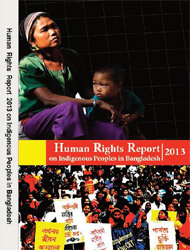
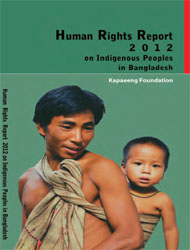
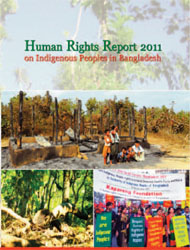
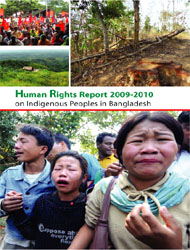

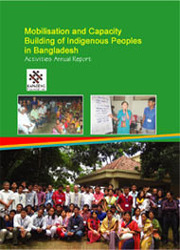



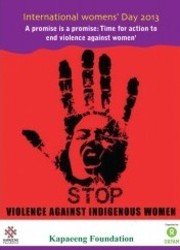
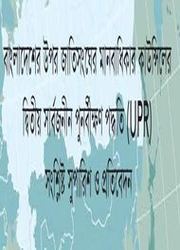
 May 23rd, 2014
May 23rd, 2014  KapaeengUser
KapaeengUser  Posted in
Posted in 